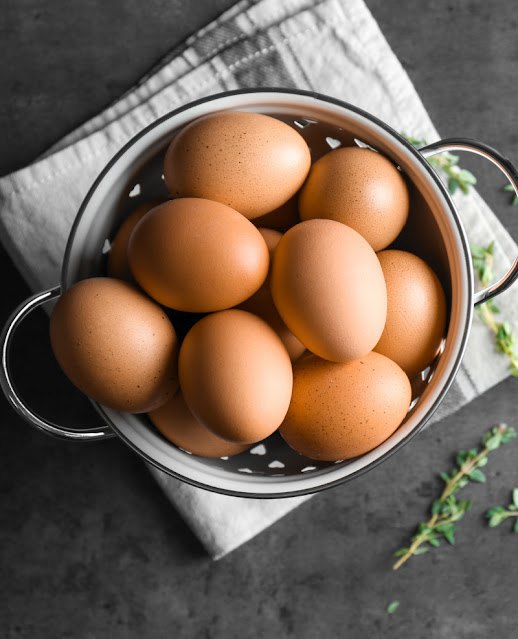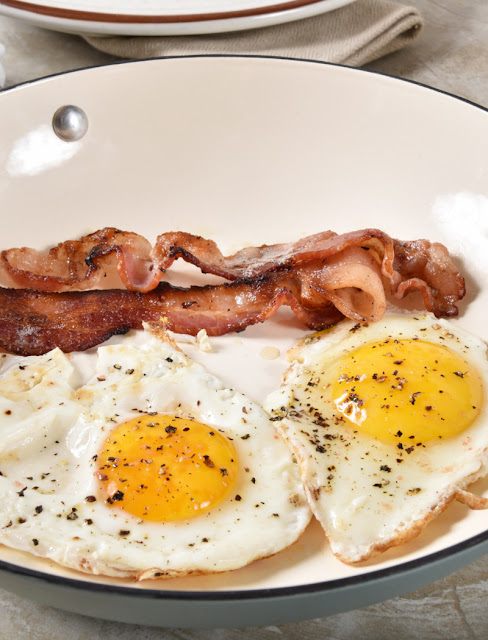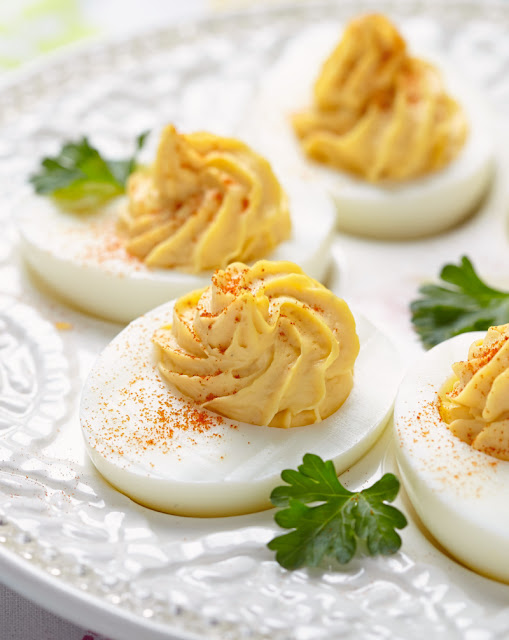I eat eggs almost every day for breakfast (at least when my chickens are laying!) And since the average American eats about 280 eggs a year, apparently I'm not alone.
I would say it's a safe guess that the majority of American families are sitting down to a breakfast of eggs more often than not.
Fried, scrambled, poached, soft-boiled, hard-boiled, cooked into an omelet, or baked into a frittata or quiche, each method of cooking eggs results in a wildly different result.
Since eggs are so versatile and can be prepared in so many ways, it's essential that you stock a few must-have tools in your kitchen.
12+ Essential Tools for Egg Lovers
1. A Whisk (or Three!)
Whether you're scrambling eggs or getting ready to make an omelet, frittata, quiche, or cake, you're going to need to whisk a bowl full of eggs.
I consider my whisk one of my most essential kitchen tools. And I have more than one whisk. I have full-sized and mini whisks, as well as metal and silicone (for my enameled pans that a metal whisk would scratch) whisks.
I have balloon whisks and French whisks (which are actually the best for eggs, I think), or you can use an egg/gravy whisk or coil whisk instead for your eggs (I find these harder to clean though).
2. A Slotted Spoon
Not a fan of scrambled eggs? Are poached eggs your thing instead? Then you'll need a slotted spoon to fish the eggs out of the water when they're done.
3. A Colander
Colanders come in handy in any kitchen, but I use mine constantly with my eggs. I fill the colander with eggs, then rinse them under warm water just before cracking them.
I also steam eggs in my colander over a pot of simmering water instead of boiling them when I make hard-cooked or deviled eggs.
4. A Spatula
Spatulas come in all materials, shapes and sizes. Since I often use my enameled cast iron pan for cooking eggs, I usually reach for my wooden spatula, although I also love a silicone spatula because it bends and molds itself to the shape of the pan.
If you're using a stainless steel or cast iron pan for your eggs, you can also use a metal spatula. I also sometimes use my fish turner to get an omelet onto the plate, for example. This one even has a nice silicone edge.
Whether you're scrambling or frying eggs, a spatula will help them out of the pan quite nicely.
5. Tongs
Tongs aren't just for pulling pasta out of a pot of boiling water. A set of tongs are essential for handling hard-cooked eggs before they're cool enough to pick up.
I'm always reaching for my tongs when I steam a pot full of eggs for egg salad or deviled eggs.
6. An Egg Slicer
My mom had this handy little gadget and I've had one since moving out on my own decades ago.
It slices eggs quickly and neatly to arrange on top of a salad or avocado toast - or turn the egg the other way after you slice it to dice the egg for egg salad. Fancy, newer versions also cut eggs into wedges. Do yourself a favor and make your life easier. I'm not generally a fan of one-use gadgets, but this one is worth having.
7. A "Non-stick" Skillet
I ditched Teflon and other traditional non-stick pans decades ago.
But a good skillet is essential for cooking eggs. Although I do love my cast iron skillets, I tend to cook my eggs in an enameled cast iron skillet. The smooth surface ensures that your eggs won't stick.
8. An Omelet Pan
Omelets are a beast all of their own. They can be tricky, and a dedicated omelet pan is something I consider essential if you plan on making a lot of omelets.
A good omelet pan feels good in your hand, isn't too heavy and has shallow, sloped sides.
9. An Egg Timer
Because eggs cook extremely quickly, even one minute of additional cooking time can mean the difference between a soft-boiled, jammy egg yolk and a fully cooked yolk.
These days, I would guess most of us use our phones as kitchen timers, but keeping an egg timer on hand isn't a bad idea in case your phone is out of a charge while you're poaching your eggs!
10. A Deviled Egg Tray
It seems that everyone loves deviled eggs! They're always a big hit at potluck suppers, picnics, and barbeques. Investing in a pretty plate to showcase your beautiful eggs isn't a bad idea.
Nobody wants to deal with eggs sliding around on a regular plate - especially if you're bringing your deviled eggs to someone else's house.
Sure, you can slice off a bit of the bottom of each egg white to stabilize the eggs, or arrange them on a piece of lettuce, but it's just easier to buy yourself an egg tray.
11. An Egg Separator
Separating eggs with your fingers is fast and efficient, but leaves you with messy hands. Also, if you're going to be whipping the whites, separating them with your fingers means that some of the natural oils from your hands could end up hindering the whipping process.
So do yourself a favor and invest in a simple egg separator. Separate eggs quickly and ensure that no shells end up in your bowl when you use an egg separator.
There are tons of different types of egg separators - something like this is fine and will do the job. Although I find this style of egg separator easier to clean.
12. A Copper Mixing Bowl
And if you're at all serious about your egg whites, then you really should be beating them in a copper bowl.
The ions in the copper react with the protein in the egg whites resulting in a more stable foam that will make your beaten egg whites hold up longer and take more time to deflate. This is super handy when you're making any type of meringue dessert.
It's also harder to over beat the whites when you use a copper bowl. And copper is preferred over plastic because it's easier to completely rid the copper of any traces of grease or fat that will cause the whites to not whip up correctly.
13. A Crepe Pan
Don't be intimidated by the thought of making crepes. They're no more difficult than making pancakes as long as you have the right pan.
And they can be filled with everything from Nutella or berries and cream, and served folder or stacked into a "cake" or even stuffed with savory fillings like mushrooms. But you will need a crepe pan.








.jpg)





.jpg)


